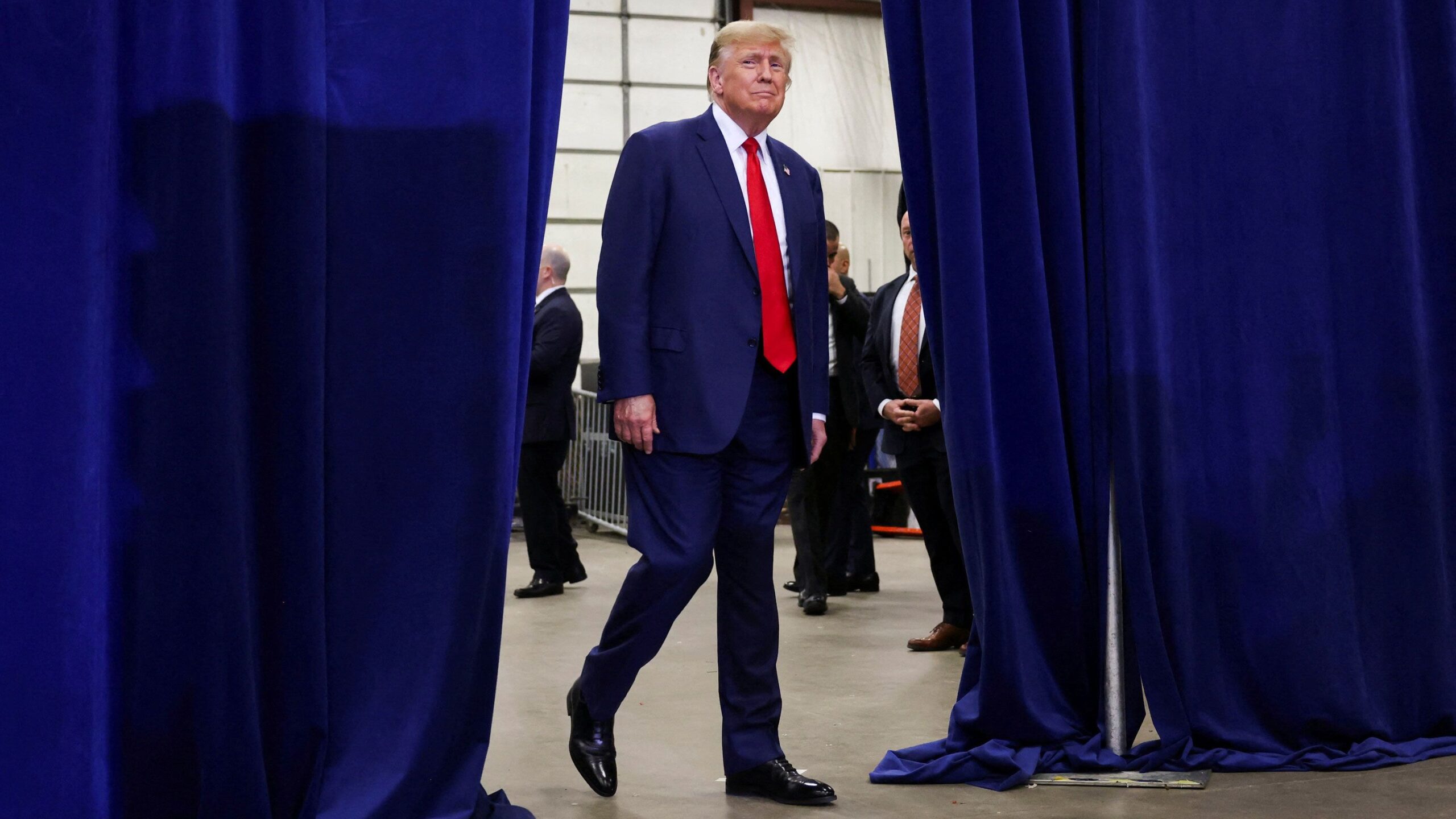In an unprecedented move, former President Donald Trump is set to appear in court just six days before the Iowa caucuses, challenging a centuries-old understanding of presidential powers. The high-stakes court case, if successful, could position Trump and future presidents above the law.
Trump, the 45th president, has often expressed his belief in near-absolute presidential powers. His upcoming court appearance, where his lawyers will argue for his “absolute immunity” from prosecution in his federal 2020 election interference case, is therefore not entirely surprising.
The case stems from Trump’s alleged attempts to undermine the 2020 election results, which saw him lose to Joe Biden. The timing of the case, just before the Iowa caucuses that kickstart the 2024 voting, casts a shadow over Trump’s vision for a potential second term.
Trump has previously hinted that a return to the White House would be marked by “retribution,” potentially testing constitutional boundaries like never before. He made similar immunity claims in Georgia, where he’s seeking to dismiss state-level criminal charges related to his alleged efforts to subvert the election.
If Trump manages to establish in court that a former president is immune from prosecution for alleged crimes committed while in office, it could not only weaken the constitutional checks on the presidency but also alter the behavior of future presidents.
Trump has warned that if his appeal for immunity is denied, he would react strongly if he returns to the White House. He has argued that his search for voter fraud was part of his official duties as president, a claim that has been widely disputed.
Many experts view Trump’s appeal as a delay tactic, aiming to postpone his trial until after the November election. However, it also fits his pattern of attempting to bend power to his will.
Trump’s interpretation of presidential powers has been rejected by several judges, as it contradicts a fundamental American principle. The president, they argue, is not immune from liability for actions taken outside of official duties.
Trump’s view of presidential authority echoes that of former President Richard Nixon, who resigned over the Watergate scandal. Nixon famously claimed that if the president does it, it’s not illegal.
Trump’s legal battles and his interpretation of presidential powers could have far-reaching implications for the future of American democracy. His dominance in the GOP, his extreme rhetoric, and his promises to wield strongman power are also key political issues.
If he returns to the White House, Trump has vowed to use presidential authority to end his criminal liability and dismantle agencies like the FBI, which he perceives as part of a “Deep State” conspiracy against him.
President Biden has warned that Trump’s actions pose a grave threat to American democracy. “Trump’s assault on democracy isn’t just part of his past. It’s what he’s promising for the future,” Biden said.

